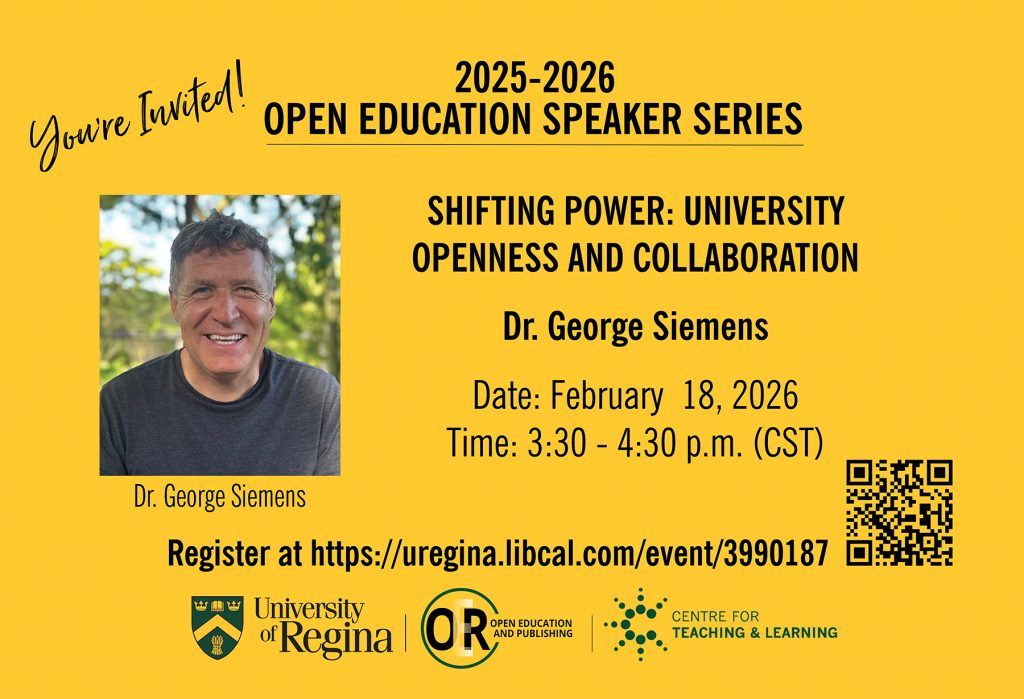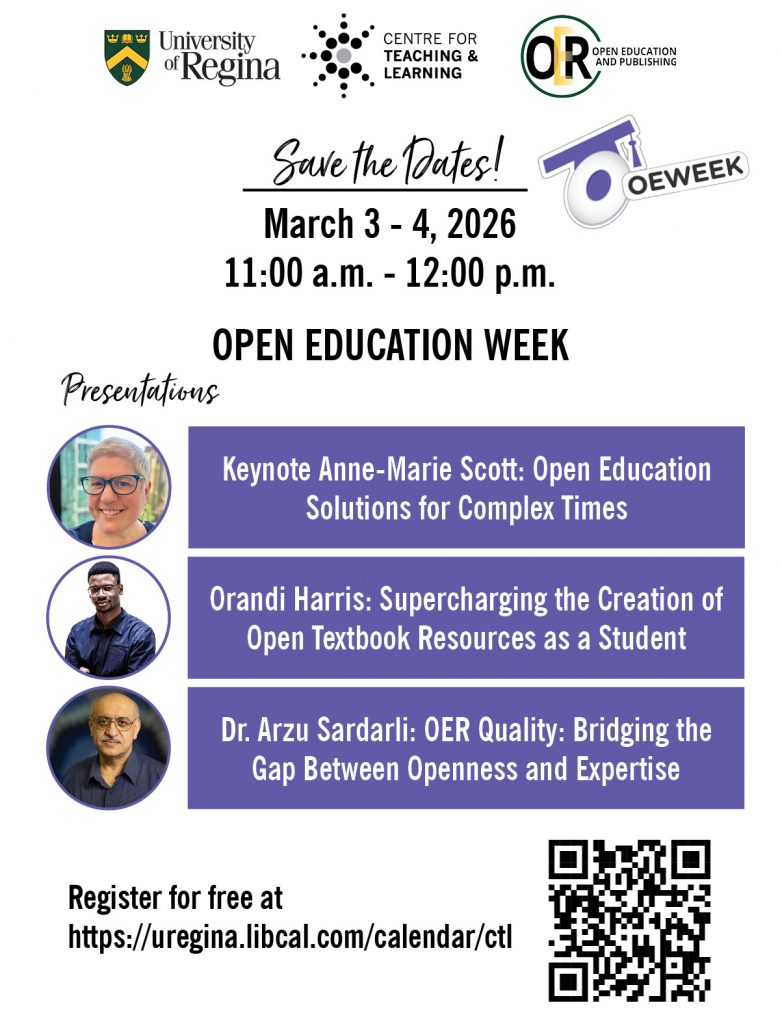OER Menu
- Open Education
- Events
- OER Grant Program
- Open Pedagogy Fellowship
- Current OER Projects
- Publications
- SaskOER Pressbooks
- OEP Newsletters
- Tools and Technologies
- U of R Open Courseware
- About OER
- OER Usage Survey
- OER Search Assistance Service
Join us for upcoming presentations!
 Shifting Power: University Openness and Collaboration
Shifting Power: University Openness and Collaboration
Dr. George Siemens, University of Southern Australia/University of Texas (Arlington)
Date: Wednesday, February 18, 2026
Time: 3:30 – 4:30 p.m.
Register at https://uregina.libcal.com/event/3990187

Open Education Week Special Presentations:
Open Education Solutions for Complex Times
Keynote Speaker: Anne-Marie Scott, Vice President of the Commonwealth of Learning, Vancouver, BC.
Date: Tuesday, March 3, 2026
Time: 11:00 a.m. – 12:00 p.m. (CST/Saskatchewan time)
Online only
Register at https://uregina.libcal.com/event/3991773
Supercharging the Creation of Open Textbook Resources as a Student
Orandi Harris, Business Administration Student, University of Regina
11:00 a.m. – 11:30 a.m. (CST/Saskatchewan time)
OER Quality: Bridging the Gap Between Openness and Expertise
Dr. Arzu Sardarli, Professor, First Nations University of Canada
11:35 a.m. – 12:00 p.m. (CST/Saskatchewan time)
Register at https://uregina.libcal.com/event/3998706
Hybrid Offering
2025-2026 Open Education Speaker Series Recordings
Sept 17, 2025
How to Maximize the Use of OER in 2025 – Use AI
Dr. Rory McGreal, UNESCO/ICODE (International Council for Open and Distance Education) Chair in Open Educational Resources (OER)
October 21, 2025
Education: The Future is Open
Dr. Richard Baraniuk, Rice University, Founder of OpenStax
November 12, 2025
Open Practice in an Era of Enclosure: Is the Medium the Message?
Dr. Bonnie Stewart, University of Windsor
December 17, 2025
The Missing Middle in Actioning Inclusion in Education
Dr. Jess Mitchell, OCAD University
January 13, 2026
Social Annotation as an Open Education Practice
Dr. Virginia Clinton-Lisell, University of North Dakota
Link to Guide to Open Pedagogy
Book Launch 2026